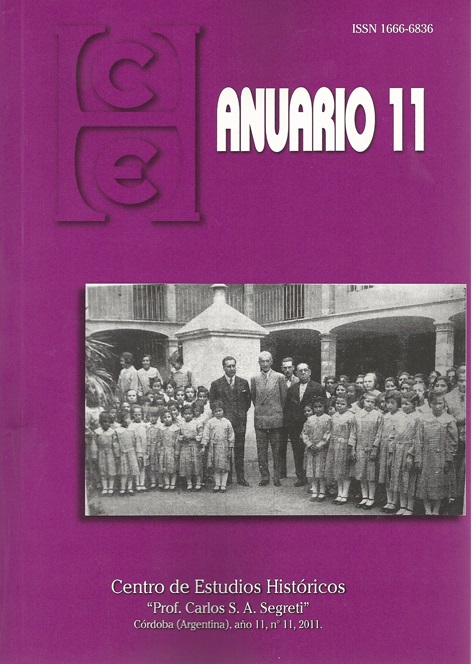Argentina and the IMF: Economic Effects of Long-Term Adjustment Programs
DOI:
https://doi.org/10.52885/2683-9164.v0.n11.23018Keywords:
Argentina, IMF, stand by, prolonged use of IMF resourcesAbstract
This paper analyzes the effects of IMF adjustment programs implemented in Argentina for extended periods. Since joining the organization in 1956, until the last stand-by agreement in 2003, Argentina signed twenty-one agreements of strong conditionality with the IMF. And from late 1982 to December 2001, was continually under its programs or seeking its approval. First, we review the literature on prolonged use of IMF resources and evaluation of their programs, then discusses Argentina agreements with the agency, its conditionalities, compliance, their effects on growth, inflation and employment, and compares the macroeconomic evolution in times of long, medium and nil stay under said agreements. In the short and medium term, the IMF programs correct the balance of payments, but their repetition affects growth, inflation, employment and social indicators.
Downloads
References
AMADEO Eduardo, La salida del abismo. Memoria política de la negociación entre Duhalde y el FMI, Buenos Aires, Planeta, 2003.
BRENTA Noemí, Argentina atrapada. Historia de las relaciones con el FMI 1956-2006, Buenos Aires, Ediciones Cooperativas, 2008.
BRENTA Noemí, “Las propuestas de dolarización en América Latina: rol del FMI, EE. UU. y los think tanks en los años ‘90”, Ciclos en la historia, la economía y la sociedad, Buenos Aires, vol. XIV, núm. 27, primer semestre de 2004.
BRENTA Noemí, “The crises in peripheral countries 1994-2002 and the balance of payments theory. A historical approach”, Economic Development and Global Crisis: The Latin American Economy in Historical Perspective, Londres, Routledge, 2012, en prensa.
BIRD Graham y ROWLANDS Dane, “The pattern of IMF lending: an analysis of prediction failures”, Journal of Policy Reform, vol. 5(3), 2003.
BUIRA Ariel, An analysis of IMF Conditionality, Puerto España, Trinidad y Tobago, Documento preparado para la Reunión del Grupo Técnico, Grupo de los 24, febrero 13-14, 2003.
DREHER Axel, IMF and economic growth: the effects of programs, loans and compliance with conditionality, Zurich, Suiza, Department of Management, Technology, and Economics, Swiss Federal Institute of Technology Zurich, agosto, 2005.
DREHER Axel, “IMF conditionality: theory and evidence”, Public Choice, núm. 141, 2009.
IVANOVA Anna, MAYER Wolfgang, MOURMOURAS Alex [et. al.], What determines the implementation of IMF-supported programs?, Working Paper WP/03/8, 2003.
MUSSA Michael y SAVASTANO Miguel, The IMF Approach to Economic Stabilization, Working Paper 104, 1999.
MUSSO Alberto y Steven PHILIPS, Comparing projections and outcomes of IMF-supported programs, FMI, Working Paper, WP/01/45, 2001.
Downloads
Published
How to Cite
Issue
Section
License
Aquellos autores/as que tengan publicaciones con esta revista, aceptan los términos siguientes:
- Los autores/as conservarán sus derechos de autor y garantizarán a la revista el derecho de primera publicación de su obra, el cuál estará simultáneamente sujeto a una Licencia de reconocimiento de Creative Commons. Se puede compartir, copiar, distribuir, ejecutar y comunicar públicamente la obra, siempre que: a) se cite la autoría y la fuente original de su publicación (revista, editorial y URL de la obra); b) no se use para fines comerciales; c) no se altere, transforme o genere una obra derivada a partir de esta obra.
- Los autores/as podrán adoptar otros acuerdos de licencia no exclusiva de distribución de la versión de la obra publicada (p. ej.: depositarla en un archivo telemático institucional o publicarla en un volumen monográfico) siempre que se indique la publicación inicial en esta revista.
- Se permite y recomienda a los autores/as difundir su obra a través de Internet (p. ej.: en archivos telemáticos institucionales o en su página web) después del proceso de publicación, lo cual puede producir intercambios interesantes y aumentar las citas de la obra publicada. (Véase El efecto del acceso abierto).


